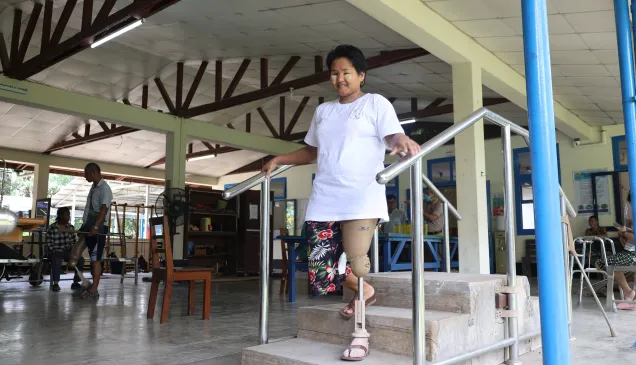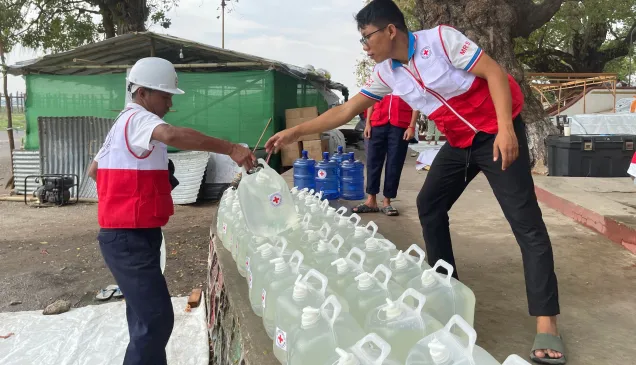Myanmar: Paving the road to sustainable livelihoods
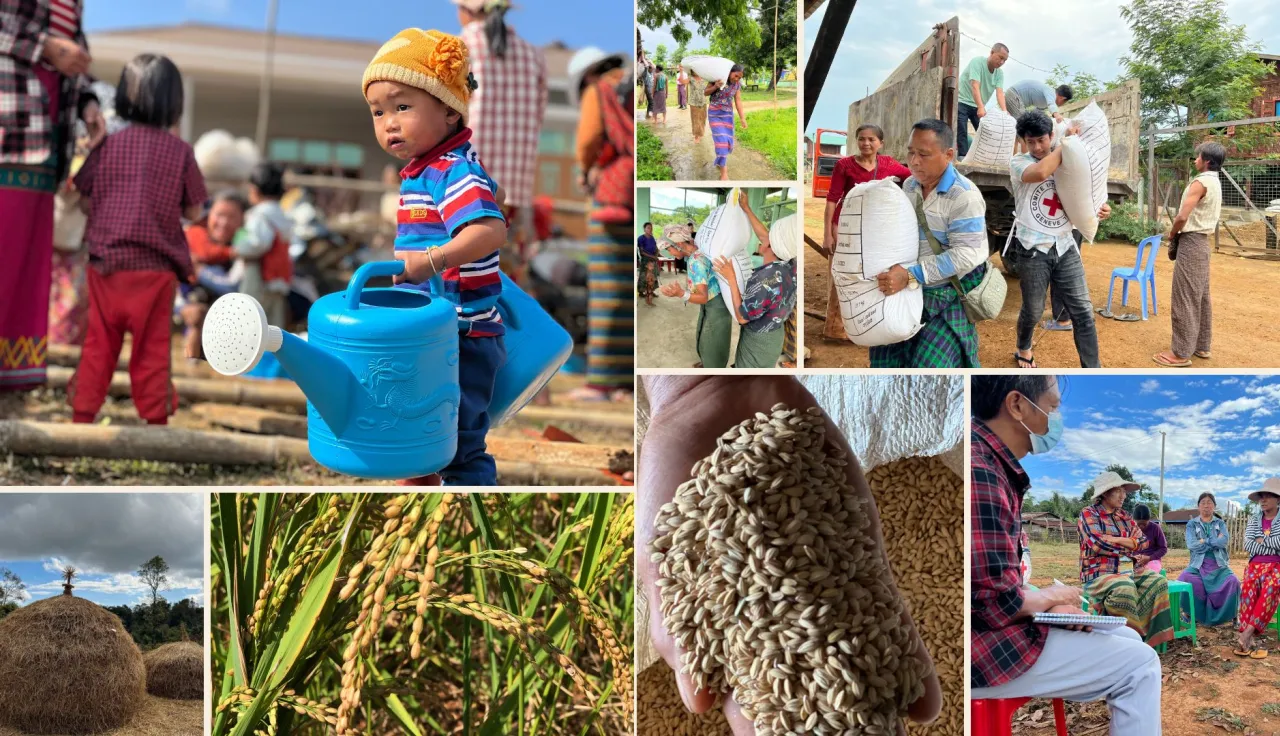
The majority of the population in Myanmar relies on farming as their primary source of livelihood. However, decades of armed conflict, other violence and natural disasters have destroyed farmland and forced people to flee their homes.
Given the protracted consequences, the need for humanitarian assistance in the region is greater than ever before.
Since 2017, the International Committee of the Red Cross (ICRC) has been helping local farmers in Myanmar by giving them seed to grow staple crops, farming tools and organic fertilizers to improve agricultural productivity. We have also been organizing training programmes to build the capacities of the famers and develop sustainable means of livelihood.
Our teams in Myanmar distributed seed, farm tools and fertilizers to over 92,728 people from January to June 2023.
Kachin State
In Kachin we distributed paddy seed and organic fertilizers to over 1,500 families in Myitkyina, Waingmaw, Hpakant, Mogaung and Mansi townships.
"The past years have been very tough for me and my family. Ensuring that we have enough to eat has not been easy," says U Dan Htawng, a father of four children, who is currently living in a camp for displaced people in Hpakant township. "I believe the ICRC's support will help us get back on our feet this year," he adds.
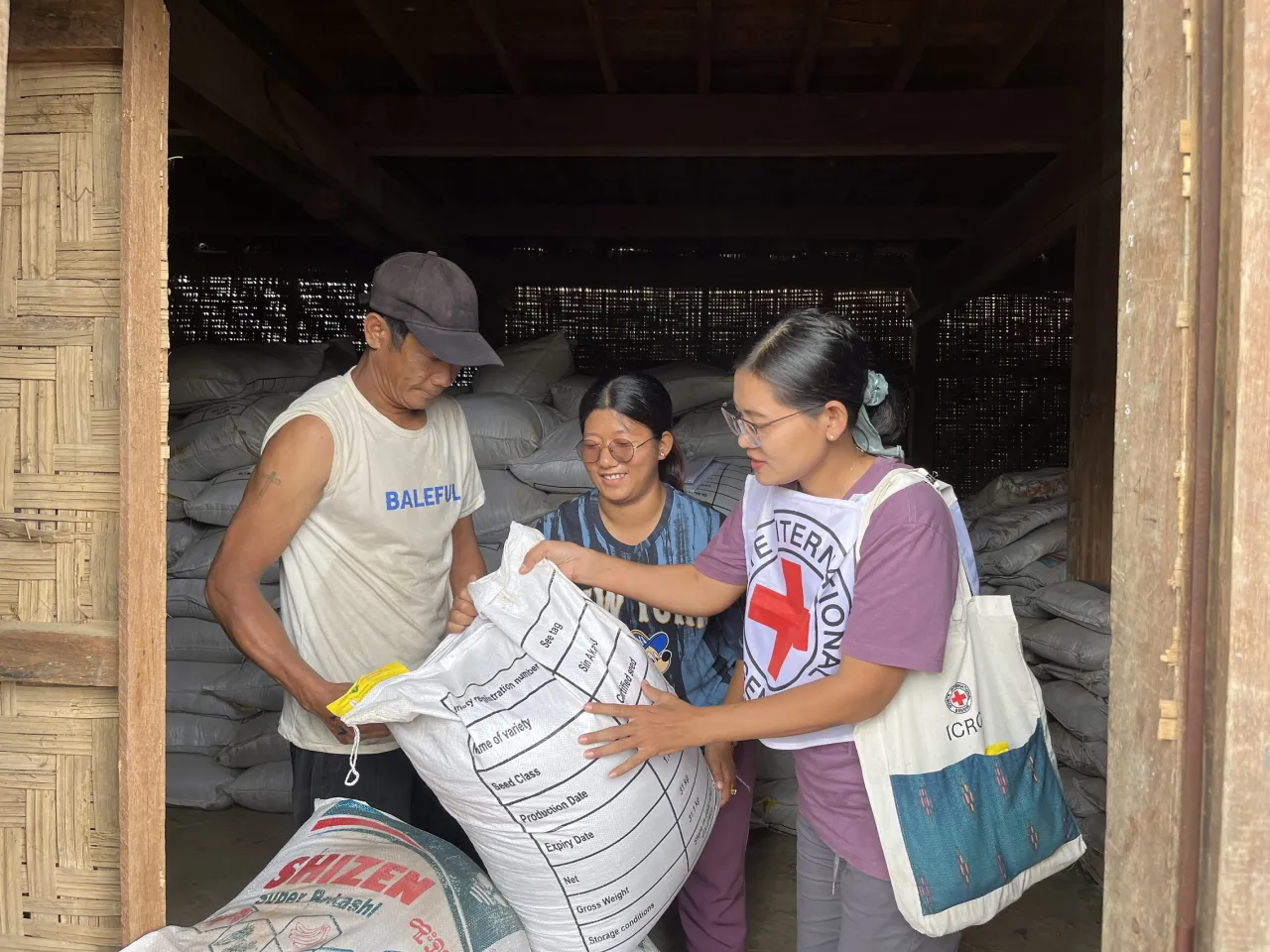
An ICRC staff member from Myitkyina office, Kachin State, distributes paddy seed to local farmers.
Rakhine State
Over the past months, our teams in Rakhine distributed paddy and vegetable seeds to 13,884 families who were most affected by Cyclone Mocha and had to rebuild their lives in Mrauk-U, Ponnagyun, Rathedaung, Pauktaw, Minbya, Buthidaung and Maungdaw townships.
"My house was damaged by the cyclone. Our crops were also destroyed, and we were concerned about further losses during the planting season," says U Win Maung, a farmer from Yoe Ta Yote village.
Many families also struggled to buy seed because of the rising cost of living. "Now that the ICRC is providing paddy seed in time for the monsoon, we can go back to our farms and start cultivating," says Zakariya, from Myo Thu Gyi village in Maungdaw.
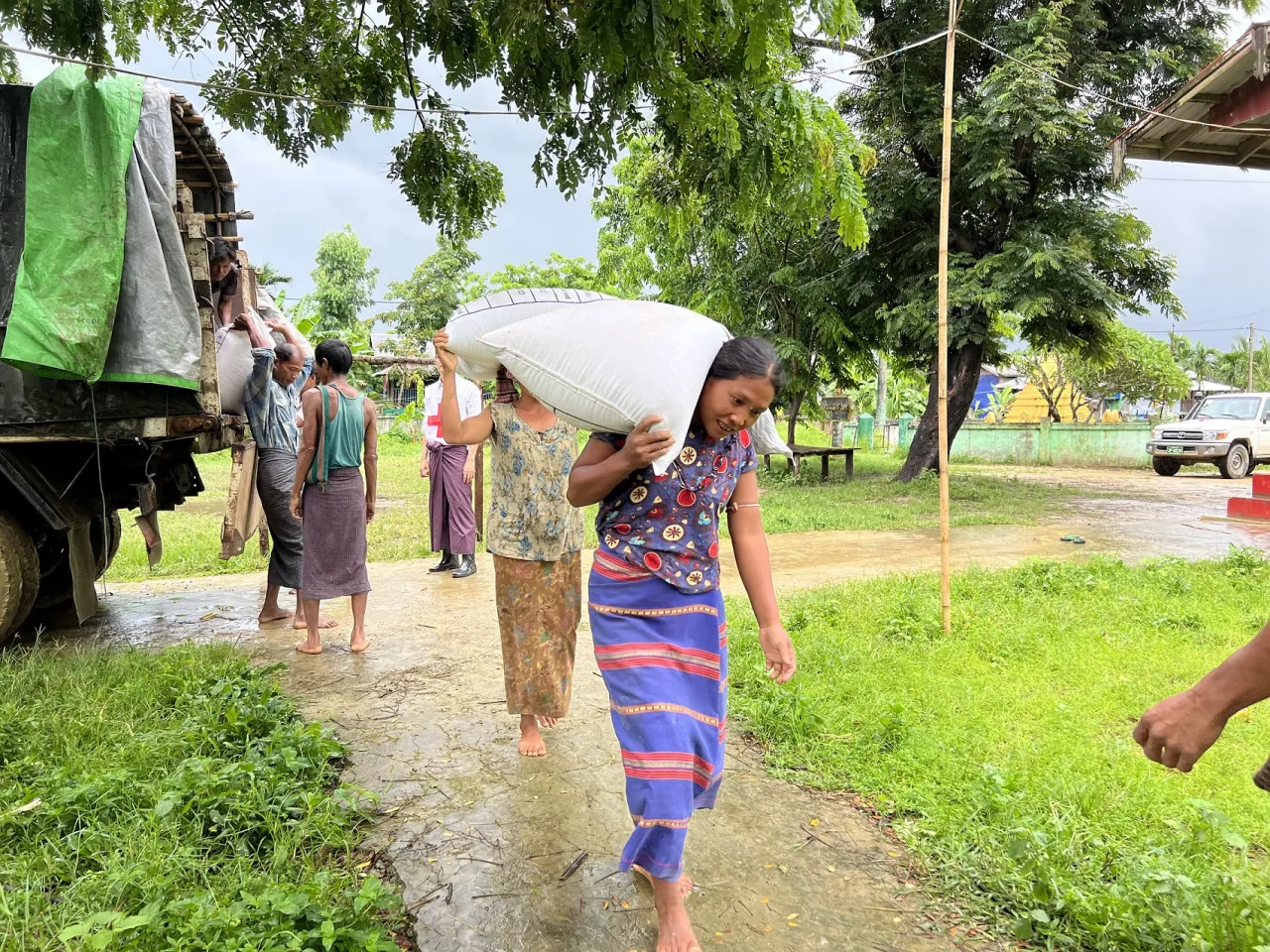
Community members carry paddy seed bags to a distribution point in Rakhine State.
Shan State
"Part of our work in Myanmar involves helping the most vulnerable families to meet their basic nutrition needs during emergency situations and to be able to support themselves in the long term," explains Martin Samtan, an ICRC staff member from Lashio.
During the monsoon when it's time to plant, our team in Lashio distributed paddy seed and groundnuts to over 1,250 families across Kutkai, Lashio, Namtu, Namhkam townships in northern Shan State.
Through this support, the community will be able to provide for itself and continue farming for a sustainable livelihood.
Families can now earn an income from their own farms as well as consume better quality food.
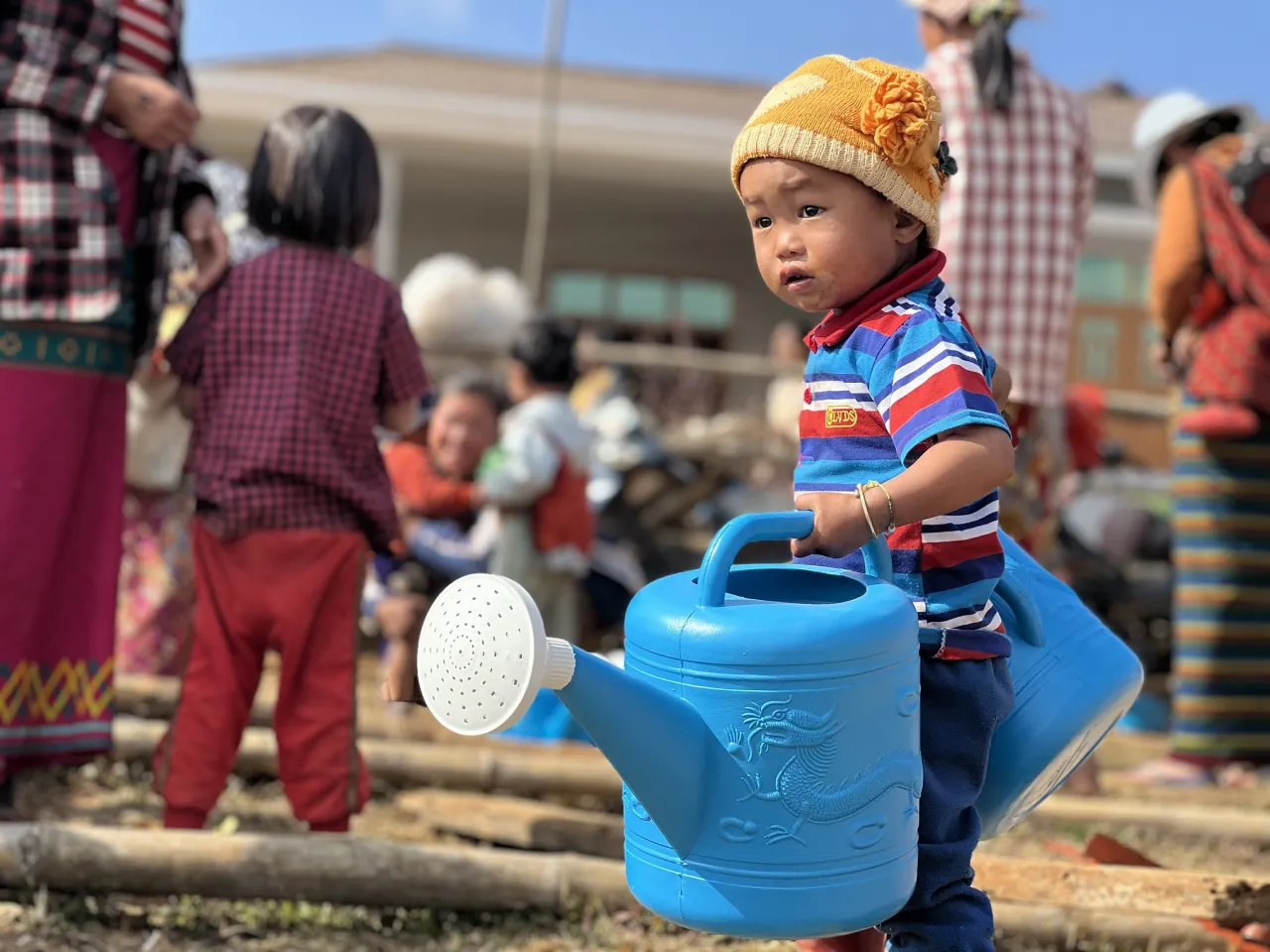
A child from Kalaing Kone Chan, Kutkai Township, carries watering cans.
The ICRC continues to monitor the humanitarian situation in Myanmar. As part of the International Red Cross and Red Crescent Movement we work closely with the Myanmar Red Cross Society (MRCS) to help communities live in safety and with dignity.
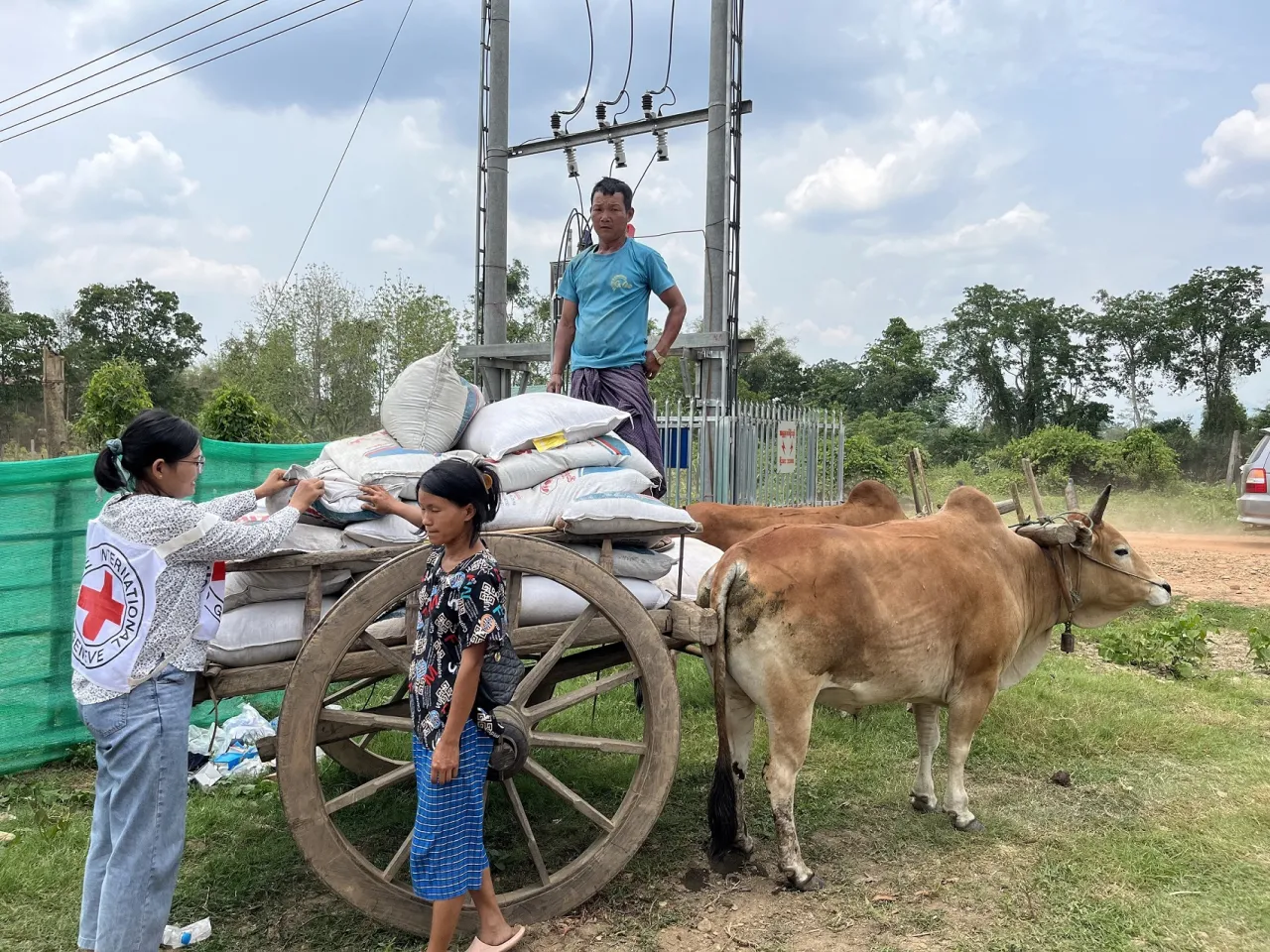
Some families brought bullock carts to carry supplies back home.


